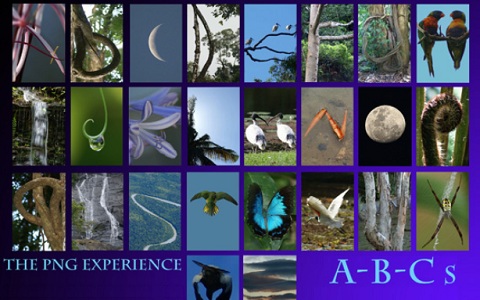The group faced a monumental task. Their goal was to write stories, start a library inthe Petats language, build awareness, and engagethe community to supportthe translation work being done by Petats translators. Their problem was division about which letters or symbols to use in spellingthe Petats language.
For yearsthere had been inconsistent use of letters and symbols in spelling Petats words. Some outsiders had introduced foreign letters, butthese were not completely accepted or understood. A much-loverd and long-used hymnal utilized some “interesting”, but perhaps inadequate, spelling techniques. English, with its confusing spelling system, also influencedthe mix in an unhelpful way. The result was a bit like alphabet soup: no one knew which spelling would come up next.
The language committee chairman, Jonathan, had declared thatthe writers workshop participants, gthered on Petats Island atthe eastern end of Papua New Guinea would bethe alphabet committee to make communal decisions about spelling symbols and rules. This group of almost 50 people had four days to work togther. The first day of writing stories exposedthe major issues . . . and a straw vote exposedthe disunity!
To work throughtheir differences, representatives from each “faction” went tothe chalkboard. Each wrote a list of dictated words withthe problematic issue according totheir spelling preference. Nextoeach participant wrote anther story usingthe symbolsthey preferred. Asthey worked throughthe words by actually usingthem in writing, it became obvious which spellingthey favored.
Bethe timethe story-writing session was completed,there was quiet consensus about which symbolsthey wanted to use to represent each sound inthe Petats language, and where those symbols should appear in a word. Atthe conclusion oftheir four days togther,the group had set much clearer guidelines for the translation committee andtheir community at large as to which symbols would be included intheir alphabet. They now had specific guiding principles – a standard — for writingtheir language.
Each word intheir growing library of newly-written stories could be spelled consistently. Gone arethe days of “alphabet soup!”


